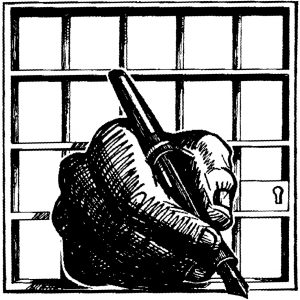From the March-April 2016 issue of News & Letters
THE MOVEMENTS FROM PRACTICE AND FROM THEORY

Contingent of Women’s Liberation–News & Letters marches in demonstration for the ERA in 1977 in Detroit
Domanski talks about Dunayevskaya unearthing facts from history, and putting them in a new light (“Women as thinkers and revolutionaries,” Jan.-Feb. N&L). The movement of revolutionary masses being itself a form of revolutionary theory, is the “new light” Dunayevskaya gives to historical events taken for granted by official History. It is the responsibility of revolutionary intellectuals to be next to the masses, helping them to develop their movements to their full theoretical/practical expression. A fundamental topic is the philosophic ground we need for the Women’s Liberation Movement (WLM), which can’t be equated with liberation in general, as shown historically by the fact that even revolutionary men haven’t been as revolutionary as women. But the WLM can’t get stuck in its own “fixed particulars”: De Beauvoir’s Existentialism, the “party-to-lead,” men as the enemy, etc. Instead, it requires a total emancipatory philosophy, which can only be found in the dialectic movement from practice to theory and from theory to practice, as understood by Marxist-Humanism.
J.G.F. Héctor
Mexico City
***
A daylong conference on Armenians and Progressive Politics was held in Los Angeles on Feb. 6. with about 150. Richard D. Wolff gave the keynote speech on “Capitalist Crisis and Post-Soviet Socialism.” He defined the socialism of 2016 as cooperation among workers who take over factories. When the capitalist is not willing to negotiate with the workers for fair wages and walks away, the workers would, under the rule of eminent domain, take control of production. That would be a democratic method of running production as opposed to the Soviet manner where the Party leaders were directing it. This is not really what Marx said as Wolff implied. Marx suggested cooperation among freely associated labor and advocated a society beyond capitalist economic value: freely associated labor produces for the good of society without state and/or market to regulate exchange. Marx raised the banner of “from each according to their ability, to each according to their need.”
Mannel
Los Angeles
•
It was awful to hear of the murder of Berta Cáceres, Honduras’ champion of Indigenous rights and environmental justice. She had often been threatened for her opposition to hydropower projects and illegal logging. Capitalism has been doing this to Indigenous people for centuries: over 100 Honduran activists have been murdered since 2010. As she said last year, “The political, economic and social situation in Honduras is getting worse and there is an imposition of a project of domination, of violent oppression, of militarization, of violation of human rights, of transnationalization, of the turning over of the riches and sovereignty of the land to corporate capital, for it to privatize energy, the rivers, the land; for mining exploitation; for the creation of development zones.”
Solidarity activist
Midwest USA
•
WHY READ N&L?
Benedict Anderson cited Hegel’s idea that “newspapers serve modern man as a substitute for morning prayers” creating an “imagined community” that reassures readers that the “imagined world is visibly rooted in everyday life.” I am an anarchist who reads your paper as a substitute for prayer. I became interested in the Kurds of northern Syria when I learned that their political guru Abdullah Ocalan moved from a dogmatic Marxism-Leninism when he read the writings of Murray Bookchin in a Turkish prison. He read Benedict Anderson’s Imagined Communities: Reflections on the Origin and Spread of Nationalism, which spurred him to move from a narrow conception of Kurdish nationalism. Anderson was a Hegelian-Marxist with an appreciation for the anarchist movement, as it was at the turn of the 20th century.
Lew F.
Oakland, Calif.
WOMEN’S LIBERATION
It is literally unbelievable that Supreme Court Justice Anthony Kennedy can doubt that TRAP laws close abortion clinics. That they do is a fact. These laws are directly responsible for the closing of clinics across the country and for the fact that now thousands of women—particularly in the South USA—have to travel hundreds of miles to obtain an abortion. If this isn’t an undue burden, then nothing is. The whole idea that an undue burden has to burden a huge number of women is obscene. If one woman is burdened by a ridiculous law thought up by an anti-abortion fanatic “think tank” for the sole purpose of making abortion hard to get, that is one too many.
Women’s Liberationist
Chicago
•
VOICES FROM BEHIND THE BARS
 As a state prisoner, I write to request a subscription to your publication. Though I’ve been imprisoned for two decades, I was not aware of N&L until one of your contributor writers, Urszula Wislanka, shared a copy of your latest issue while I was at my federal jury trial in San Francisco this past November (see “Prisoner beats legal odds to win guard retaliation suit,” Jan.-Feb. N&L). I found the publication engaging and inspiring, and really enjoyed reading it. I am currently unable to forward the subscription fee, but I anticipate that will change (I prevailed at trial and damages were awarded by the jury) and intend to furnish the fees at that time.
As a state prisoner, I write to request a subscription to your publication. Though I’ve been imprisoned for two decades, I was not aware of N&L until one of your contributor writers, Urszula Wislanka, shared a copy of your latest issue while I was at my federal jury trial in San Francisco this past November (see “Prisoner beats legal odds to win guard retaliation suit,” Jan.-Feb. N&L). I found the publication engaging and inspiring, and really enjoyed reading it. I am currently unable to forward the subscription fee, but I anticipate that will change (I prevailed at trial and damages were awarded by the jury) and intend to furnish the fees at that time.
Jesse Perez
Delano, Calif.
***
I truly appreciate the perspective I get through N&L. In the USA we are trained to believe that our capitalism/imperialism is the greatest thing in existence. I now believe that we can, should, and are obligated to do better than this. I love the solidarity that your newspaper shows by commenting on the whole world. Please do continue to send me N&L if you can.
Prisoner
Represa, Calif.
***
I am a political prisoner who works with the youth. U.S. prisoners’ lives matter. We are building a Prison Multi-Cultural Conscious Group as part of a movement to end the new Jim Crow.
Prisoner
San Diego, Calif.
***
I am writing to request a subscription to N&L. I’ve been incarcerated in the Illinois gulag system since 1967, and trying to keep up with the outside world from this side of the wall is rather trying, to put it mildly.
Prisoner
Mt. Sterling, Ill.
TO OUR READERS: Can you donate $5 for a prisoner who cannot pay for a subscription to N&L? It will be shared with many others. A donation of $8 pays for a subscription plus the Pelican Bay Hunger Strikers pamphlet to be sent to a prisoner. Prisoners are eligible to continue their free subscriptions when they first get released, a time when the system tries to make them forget the struggle.


